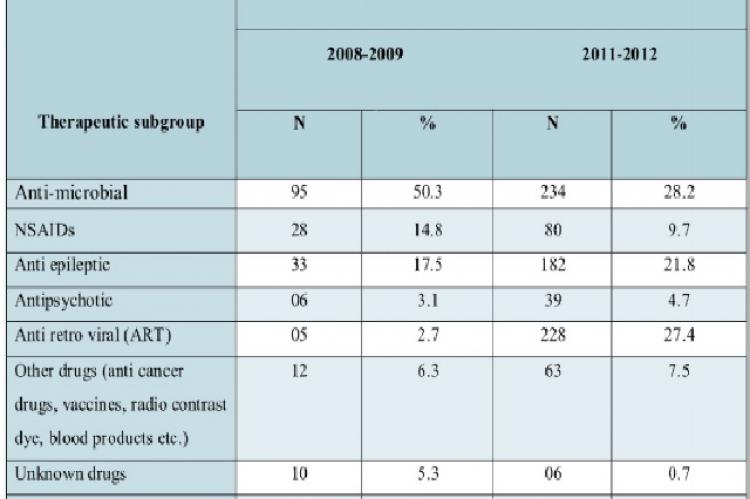Spontaneous reporting remains one of the most effective methods to detect new, rare and serious adverse drug reactions (ADRs). Although Health Care Professionals (HCPs) play a key role in early detection and reporting of ADRs, underreporting is common. This study was thus carried out to assess the effect of educational interventions on HCPs in improving spontaneous ADR reporting at our hospital. A longitudinal study with two periods, the first period before the interventions from 2008 to 2009 and the second period after implementation of the interventions from 2011 to 2012, was carried out in a tertiary care teaching hospital. Educational interventions were developed and implemented in 2010. A greater than fourfold increase in the number of ADR reports (340.2%) was seen in the second period as compared to the first period. During the second period 832 ADRs were reported as compared to 189 ADRs in the first period. Before the interventions, a maximum 15 ADRs were reported in a month while in post intervention period, 71 ADRs were reported. In both periods of the study, cutaneous reactions were the most frequently reported ADRs. Antimicrobial agents were the most common therapeutic subgroups involved in ADRs. An education interventions, was associated with an increase in spontaneous ADR reporting by hospital physicians.
View:
- PDF (628.72 KB)


